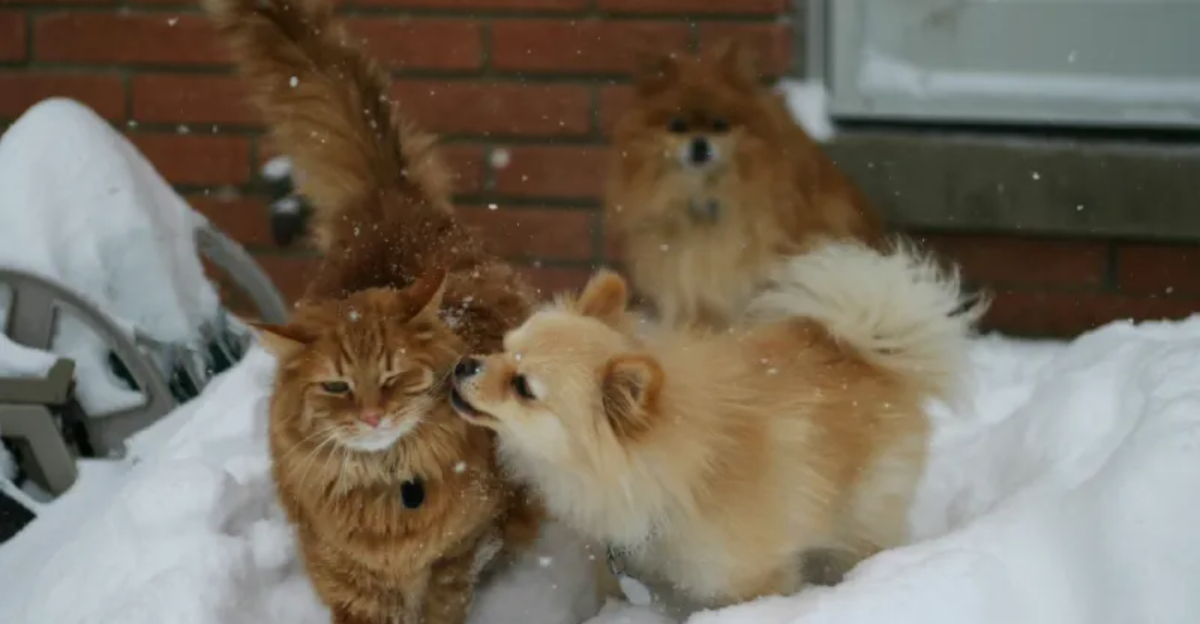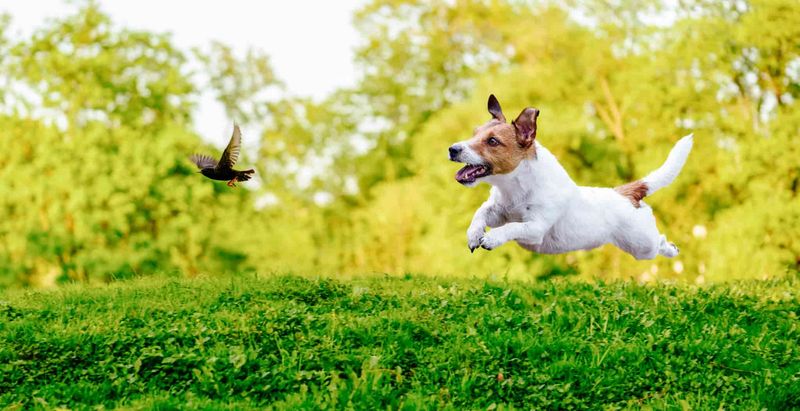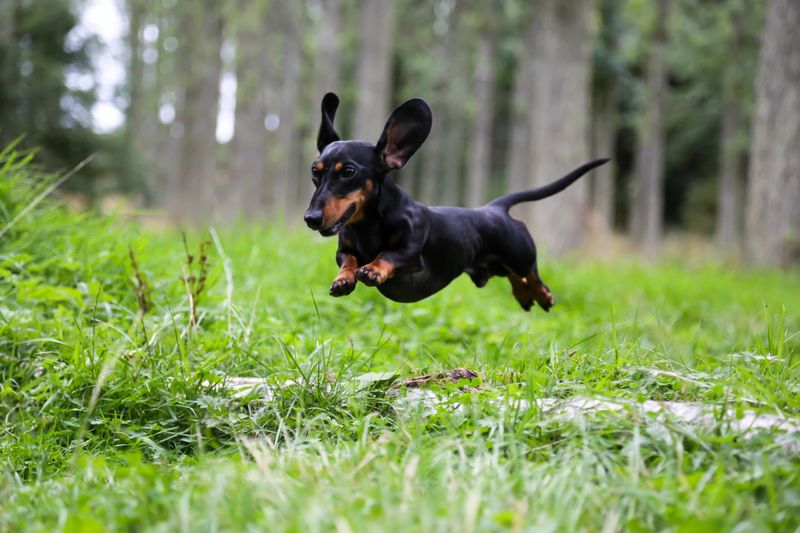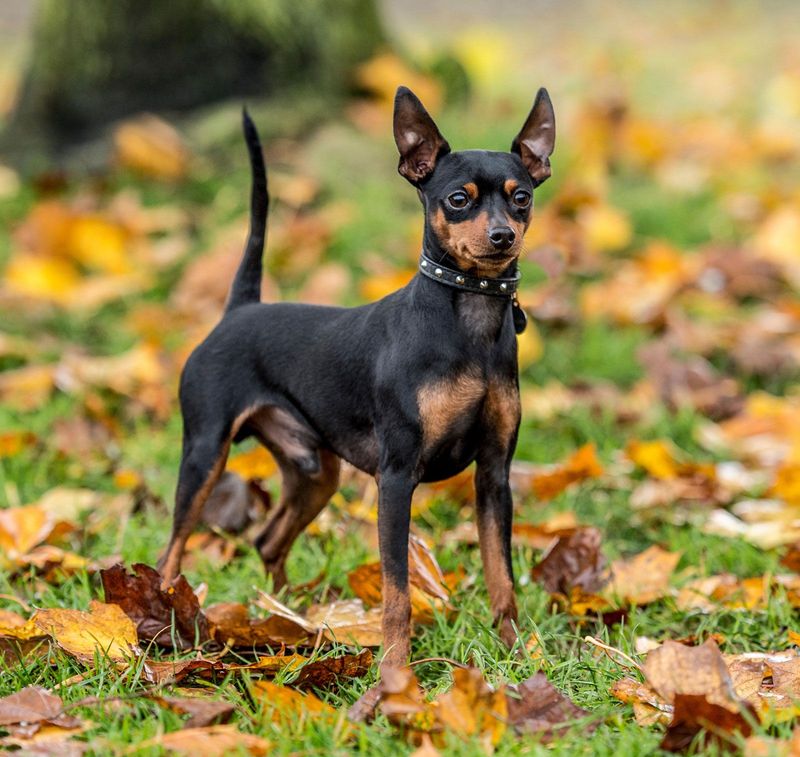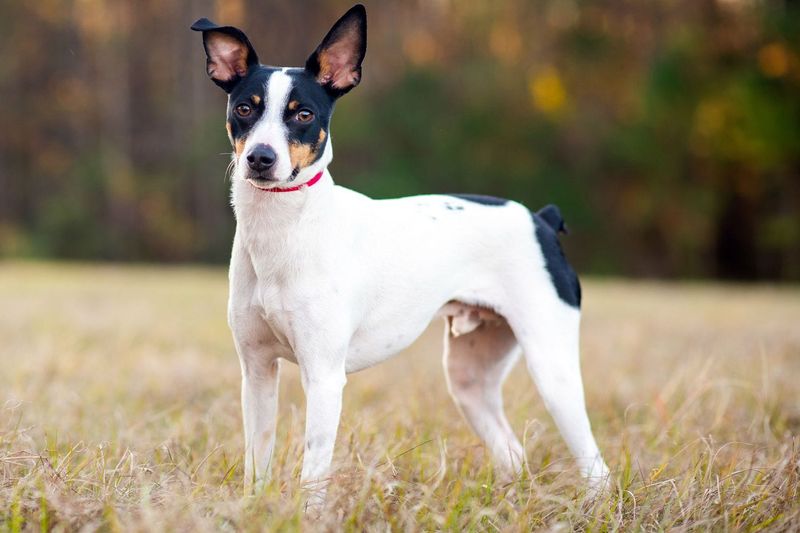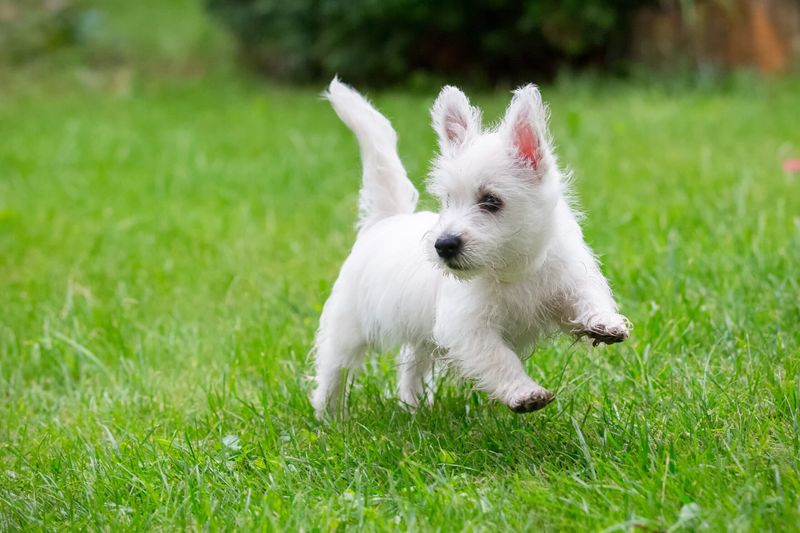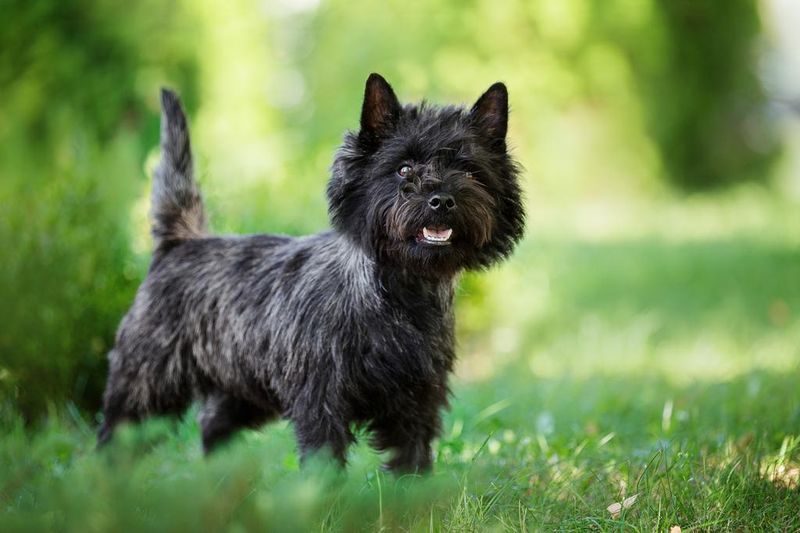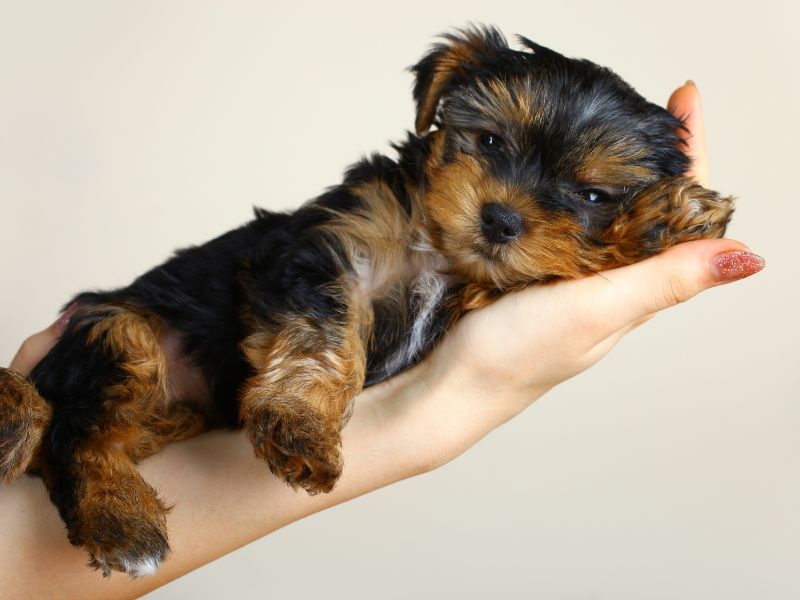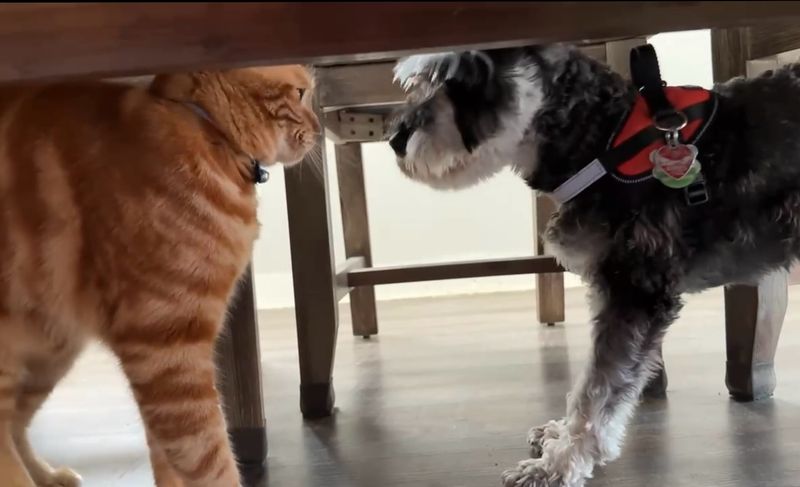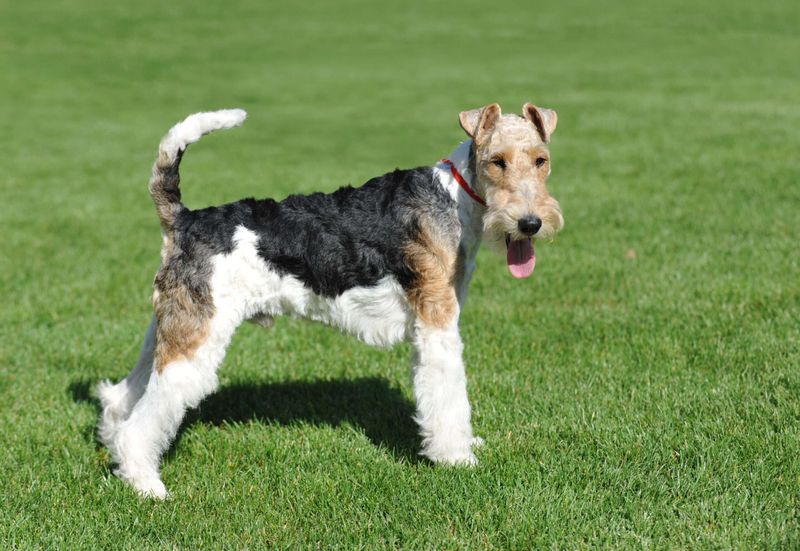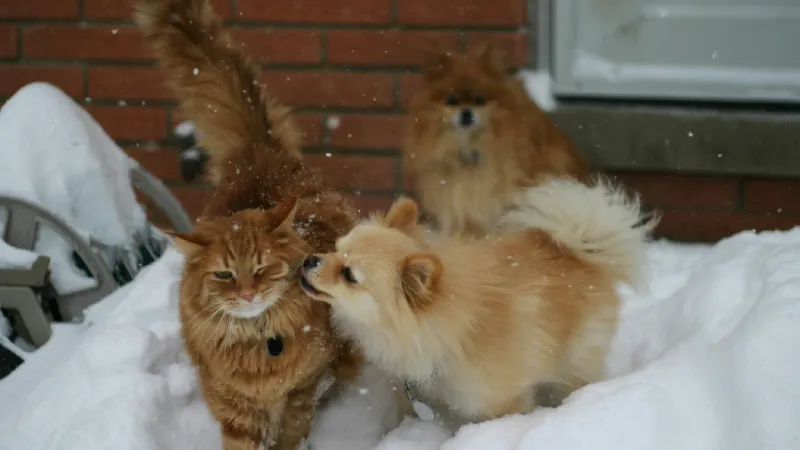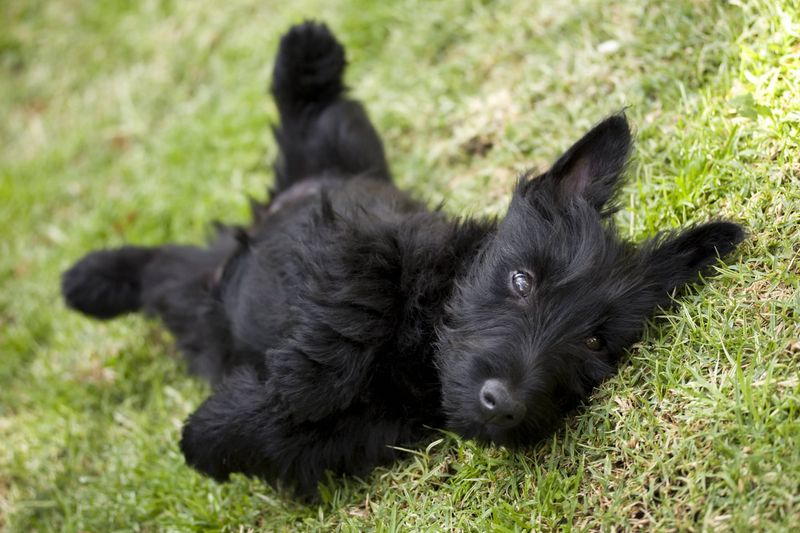📖 Table of Content:
Not every small dog is a good match for a home with cats. Despite their size, some breeds have strong instincts that can lead to chasing or dominance behaviors. This can create tension, stress, or even fear for the resident feline.
Many dogs can live peacefully with cats, but certain traits make compatibility more difficult. High prey drive, excessive energy, or possessiveness over space and toys can quickly lead to conflict. Understanding these tendencies is key to preventing problems before they start.
Choosing the right breed can make all the difference in maintaining a calm, cat-friendly environment. Some small dogs require extensive training and constant supervision around cats. Knowing which breeds to approach with caution can help protect both pets’ well-being.
1. Jack Russell Terrier
Born hunters with boundless energy, Jack Russell Terriers were originally bred to chase foxes underground. Their instinct to pursue small moving animals remains incredibly strong today. Most cat owners report that Jack Russells require extensive training to overcome their natural prey drive.
Even well-trained Jack Russells may suddenly dart after your cat if it makes a quick movement. These dogs are intelligent but stubborn, making training a challenge. Without proper socialization from puppyhood, a Jack Russell might view your cat as prey rather than a potential friend.
2. Dachshund
Dachshunds have a hunting background that makes them natural chasers. Their long bodies and short legs were developed specifically for burrowing after badgers and other small animals. Many Dachshund owners find their pets have a strong instinct to pursue anything that scurries.
Your cat’s quick movements across the floor might trigger this breed’s hunting response immediately. These dogs can be territorial about their space and possessions. Training helps, but the Dachshund’s independent streak means they may still view cats as intruders or prey rather than family members.
3. Miniature Pinscher
Fearless and energetic, Miniature Pinschers act much bigger than their small size suggests. They possess a strong prey drive despite not being bred specifically as hunting dogs. Min Pins are known for their quick movements and tendency to chase anything that runs.
Your cat’s natural behaviors might trigger this dog’s instinct to pursue, creating a stressful environment for your feline. The breed’s bold personality often leads them to challenge larger animals without hesitation. Without proper training and boundaries, a Min Pin might constantly harass your cat, preventing peaceful coexistence.
4. Rat Terrier
Bred for life as expert rodent hunters, Rat Terriers carry a strong prey instinct in their genes. Their speed and agility make them capable of rivaling a cat’s reflexes. For many, the urge to pursue anything small and fast remains hard to control.
While they can be trained to accept family cats introduced early, their prey drive may activate unexpectedly around unfamiliar cats or during play. Their determination when pursuing prey makes them potentially problematic housemates for felines.
5. West Highland White Terrier
Developed in Scotland, Westies were skilled hunters of small prey and rodents. Their bright white fur made them easy to spot during hunts, ensuring safety in the field. Those deep-rooted hunting instincts remain strong in the breed today.
Many Westie owners find their dogs will instinctively chase cats, especially if the cat runs. Though they’re affectionate with family, their independent nature and prey drive can create tensions with feline housemates. Early socialization helps, but a Westie’s natural instincts may occasionally override training when a cat makes sudden movements.
6. Cairn Terrier
Famous as the dog breed that played Toto in The Wizard of Oz, Cairn Terriers are tenacious little hunters. They were originally bred to catch vermin in the Scottish Highlands, squeezing into rocky cairns to flush out prey. Their natural instinct to chase small animals remains strong. Many Cairn owners report their dogs becoming fixated on cats, squirrels, and other small creatures.
Though small, Cairns are fearless and determined when pursuing something that catches their interest. Without proper training and boundaries, they may constantly harass your cat, making relaxation impossible for your feline friend.
7. Yorkshire Terrier
Don’t let their tiny size and glamorous coats fool you. Yorkshire Terriers were originally working dogs bred to catch rats in clothing mills during the Industrial Revolution in England. Despite their diminutive stature, Yorkies often display surprising boldness toward larger animals.
Their high energy and tendency to bark at moving objects can stress out even the most patient cats. Yorkshire Terriers can be territorial about their owners and spaces. Without proper socialization, a Yorkie might view your cat as competition for attention and resources, leading to persistent harassment that makes your cat uncomfortable in its own home.
8. Miniature Schnauzer
Originally, farm dogs bred to hunt rats, Miniature Schnauzers retain a strong prey drive despite their modern role as companions. Their distinctive bearded appearance masks a determined hunter. Their alertness and quick reactions make them responsive to fast movements.
Your cat’s natural behaviors might trigger the Schnauzer’s instinct to chase, creating a potentially stressful environment. These dogs are known for their vocal nature and tendency to bark at anything unusual. A cat’s normal activities might prompt constant alerting from a Miniature Schnauzer, making it difficult for your feline to relax and feel secure in shared spaces.
9. Fox Terrier
Fox Terriers, both smooth and wire-haired varieties, were specifically bred to flush foxes from their dens during hunts. This purpose has left them with an intense drive to pursue small animals. Their name directly reflects their original hunting purpose.
Many Fox Terrier owners discover their dogs have an almost uncontrollable urge to chase anything that runs, including household cats. Energetic and determined, these terriers rarely give up once they’ve started a chase. Without extensive training and management, a Fox Terrier might make your cat’s life stressful with constant pursuit, even if their intention is playful rather than aggressive.
10. Pomeranian
Small but mighty, Pomeranians often have outsized personalities that belie their tiny frames. Despite not being hunting dogs, they can display surprising territorial aggression toward cats. Their tendency to bark at anything unfamiliar can make cats uncomfortable.
Many Pomeranian owners find their pets become extremely vocal when a cat enters what they consider their territory. Pomeranians often bond intensely with their owners and may view cats as competition for attention. Their bold nature means they rarely back down from confrontations, even with animals much larger than themselves, potentially creating ongoing tension with your feline companion.
11. Chihuahua
Among the world’s smallest dog breeds, Chihuahuas often compensate for their tiny size with big attitudes. They frequently develop strong bonds with one person and can become jealous of other pets. Their territorial nature may cause them to view cats as intruders. Many Chihuahua owners report their dogs challenging much larger animals, including household cats, for preferred spaces or attention.
Despite their size, Chihuahuas can be surprisingly intimidating with their persistent barking and fearless demeanor. Without proper socialization, a Chihuahua might make your cat feel unwelcome in areas the dog considers its domain.
12. Scottish Terrier
Scotties were bred to hunt badgers and foxes, requiring courage and determination that remains evident in their modern temperament. Their sturdy build and fearless nature make them formidable despite their small size. Independent and sometimes stubborn, Scottish Terriers often have strong opinions about who belongs in their territory.
Many Scottie owners find their dogs are slow to accept cats as legitimate household members. Their hunting background gives them a keen interest in pursuing small moving animals. Without proper introduction and training, a Scottish Terrier might view your cat’s natural movements as an invitation to chase, creating stress for your feline companion.
13. Shih Tzu
Though often seen as pampered lap dogs, Shih Tzus can display unexpected territorial tendencies. Bred to keep Chinese royalty company, they still carry a strong sense of entitlement. When a cat receives attention, these dogs may react with jealousy—sometimes becoming vocal or clingy.
While not aggressive by nature, their stubborn streak can make them persistent in claiming favorite spots or toys. A Shih Tzu might continually displace your cat from comfortable resting places, creating ongoing tension in shared living spaces.
14. Boston Terrier
Boston Terriers were originally bred for fighting but have evolved into companion dogs with playful, energetic personalities. Their athletic build gives them surprising speed and agility for their compact size. Their exuberant play style can overwhelm cats who prefer calmer interactions. Many Boston owners find their dogs don’t recognize when they’re being too rough or intrusive with feline housemates.
Boston Terriers have a stubborn streak that can make training challenging. Without proper boundaries, their enthusiasm and desire to play might translate into persistent harassment of your cat, even when the cat clearly signals it wants to be left alone.
